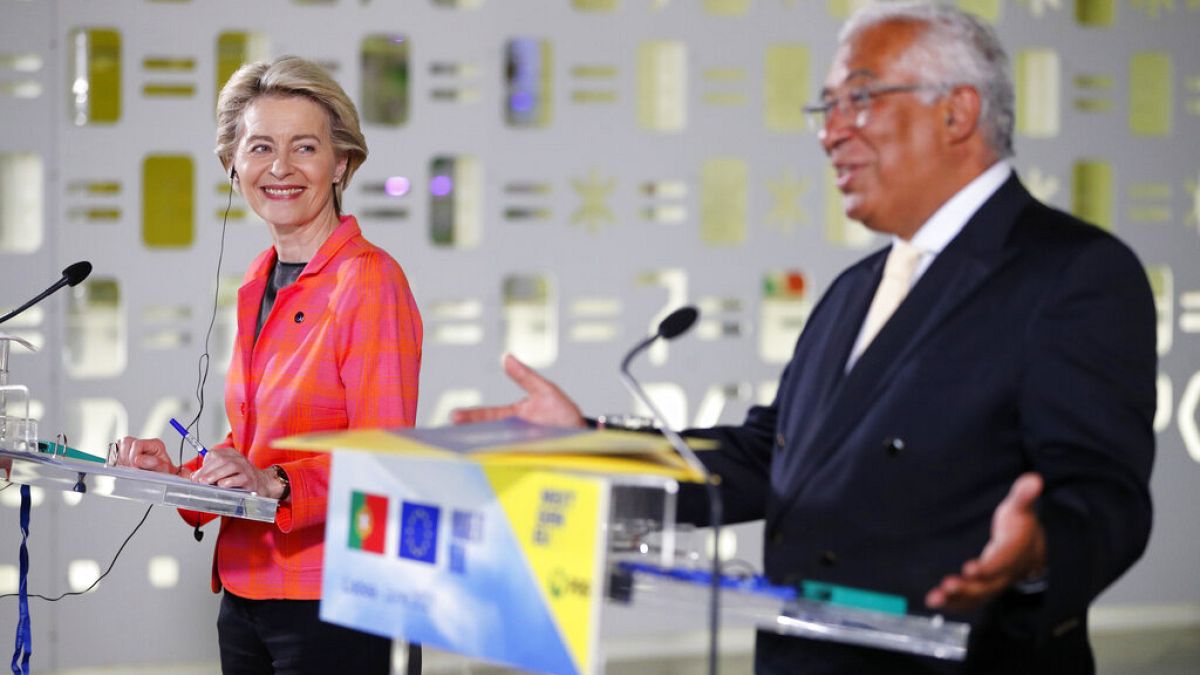The funds are expected to start flowing in July.
Portugal is the first EU country to have its COVID recovery plan approved by the European Commission.
Its president, Ursula von der Leyen, who was in Lisbon to personally deliver the news to Prime Minister António Costa, said that the first transfer of funds is expected in July.
"The plan clearly meets the demanding criteria we have jointly established. It is ambitious, it is far-sighted, and most importantly it will help build a better future for Portugal, for the Portuguese people and for the European Union," said von der Leyen.
"There is no doubt that it will deeply transform Portugal’s economy," she added.
Last year, the 27 EU member states agreed to a €750bn package to help repair the economic and social damage caused by COVID-19.
To receive funds, each country has had to specify how it will spend the money from the so-called Recovery and Resilience Facility (RRF).
The plan, which is now approved, totals €13.9bn of grants and €2.7bn of loans, and must include at least 37% of expenditure in investments and reforms that support climate objectives, and 20% towards the digital transition. These requirements are met, with 38% and 22% respectively.
On climate, Lisbon says it will invest in sustainable urban transport, including metro expansions in the capital and Porto, as well as new electric and hydrogen buses.
Forest management and fire prevention are also included in this area.
On digital, the Portuguese plan intends to invest in basic digital training for citizens, as well as modernising and digitising the country's administrative systems.
Support for businesses will also be key, with roughly €5bn to be invested in innovation and strengthening indebted companies.
The plan will see investments in healthcare projects too.
But João César das Neves, an economist from the Católica Porto Business School, has raised doubts about the immediate impact of the strategy.
"It is focused not on the pandemic and the immediate recovery situation, but on the next generation," das Never told Euronews. "In fact, it includes two things that were not negatively affected by the pandemic, on the contrary, were positively affected which are digitisation and decarbonisation, two of the few things that the pandemic has facilitated.
"We have a plan that is not aimed at the coming months, where we will be anxious to try to recover, for example, by dealing with company debt, education and health issues."
The European Council will now have four weeks to accept it or not, after which the money can be disbursed.


